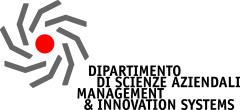Papers reporting original* and unpublished research results pertaining to the related topics are solicited. *(papers with plagiarism more than 30% will be outrightly rejected)
- Extended abstracts must be in English of up to 2-4 pages as per Springer format.
- Full paper manuscripts must be in English of up to 10 pages as per Springer format.
For authors convenience, Springer has summarized in the Author Guidelines document how a proceedings paper should be structured, how elements (headings, figures, references) should be formatted using our predefined styles, etc. The PDF of the Authors Guidelines can be downloaded from the given link or as part of the zip files containing the complete sets of instructions and templates for the different text preparation systems.
Springer has developed LaTeX style files and Word templates to help prepare paper. LaTeX is the preferred format for texts containing several formulae, but Word templates are also available on the following link:
https://www.springer.com/gp/authors-editors/conference-proceedings/conference-proceedings-guidelines
Submissions should NOT include the author(s), affiliation(s), e-mail address(es), and postal address(es) in the manuscripts. Papers will be selected based on their originality, timeliness, significance, relevance, and clarity of presentation. Paper submission implies the intent of at least one of the authors to register and present the paper, if accepted.







